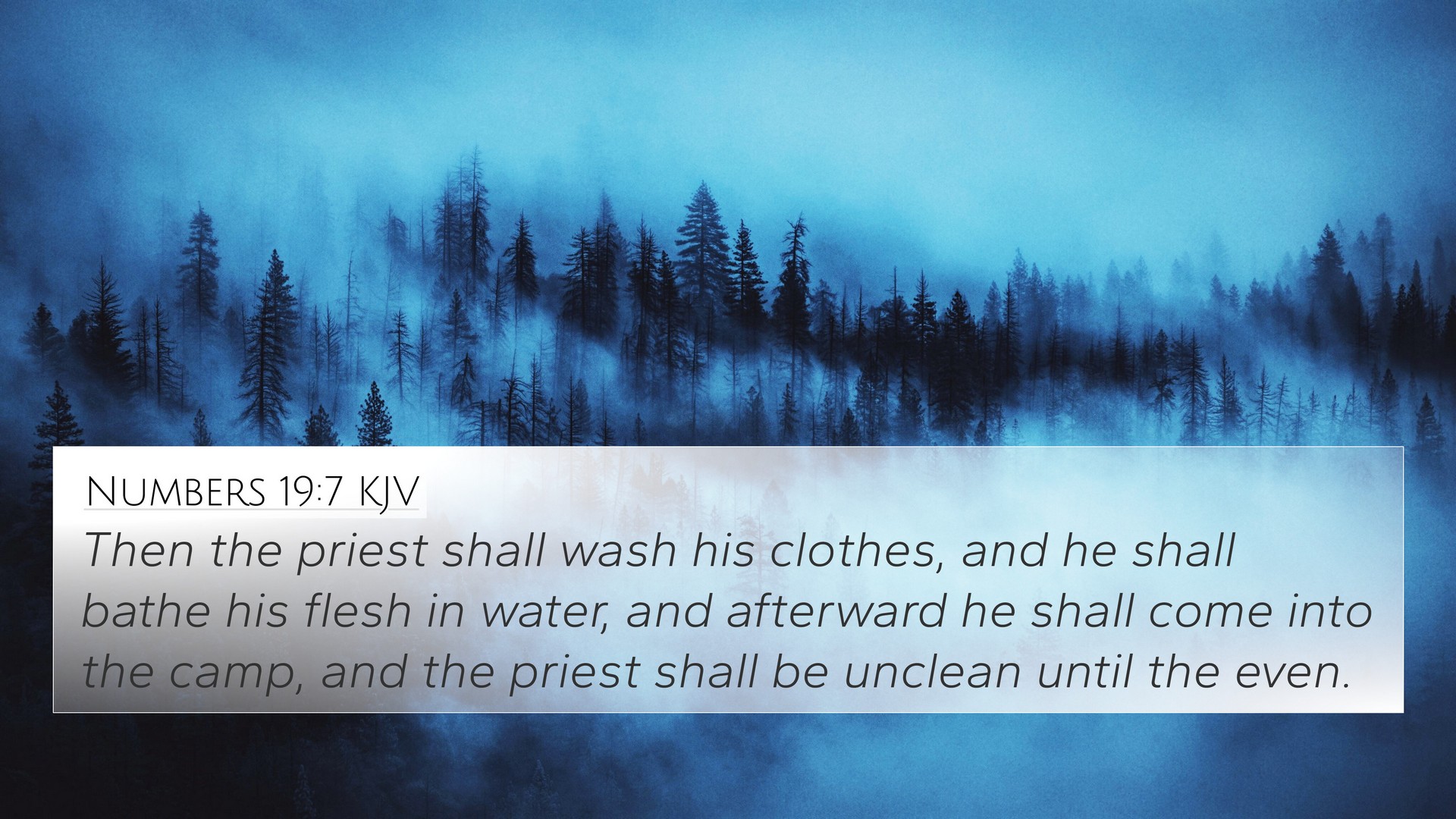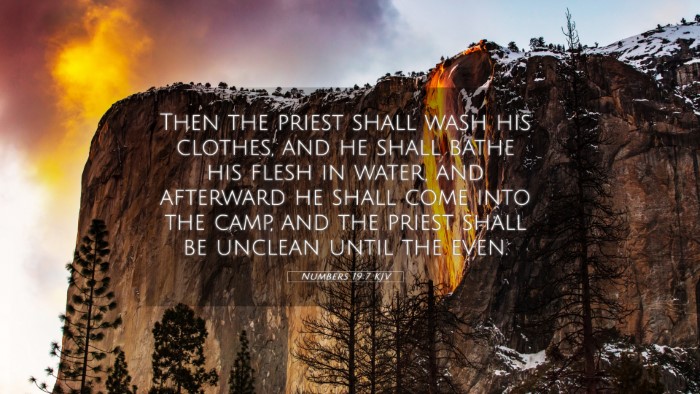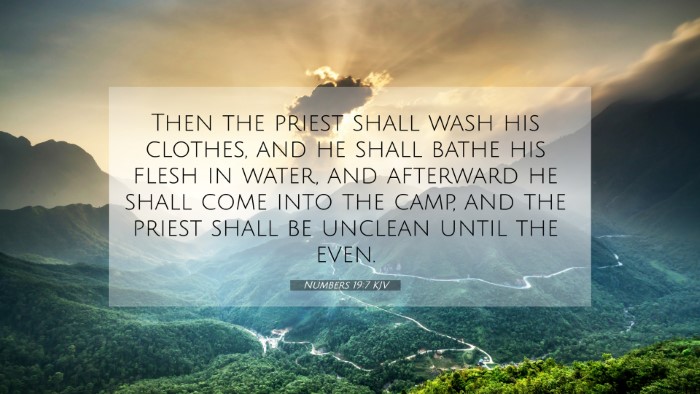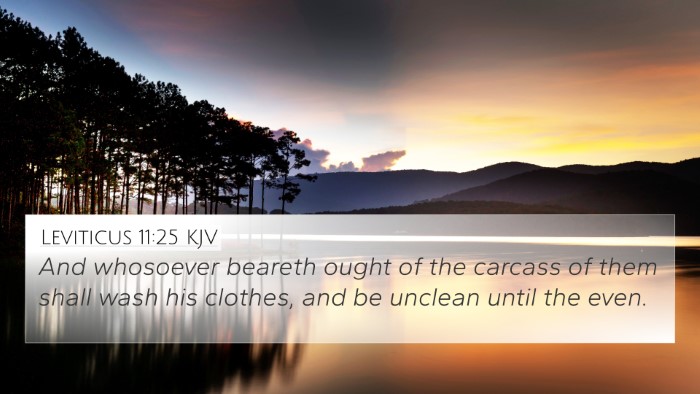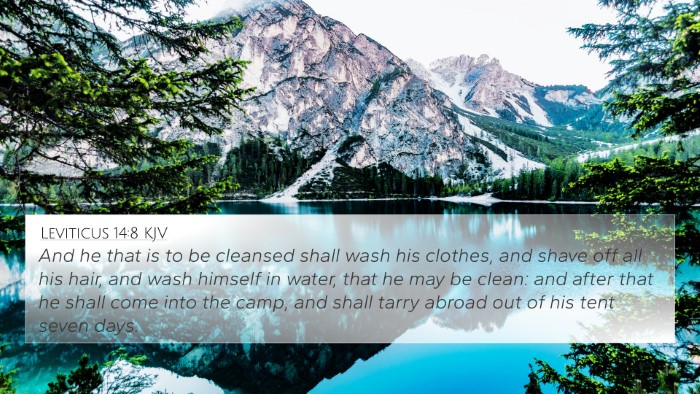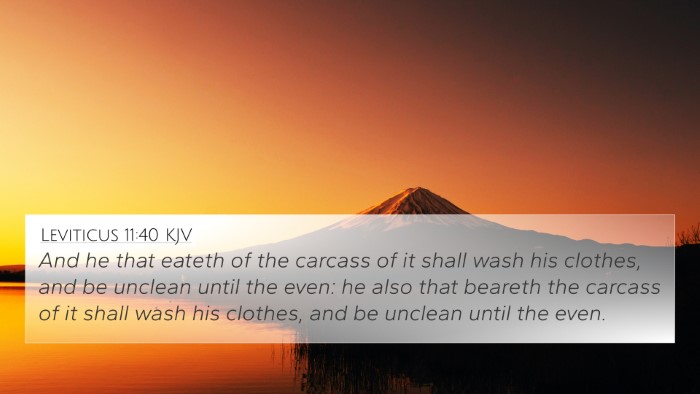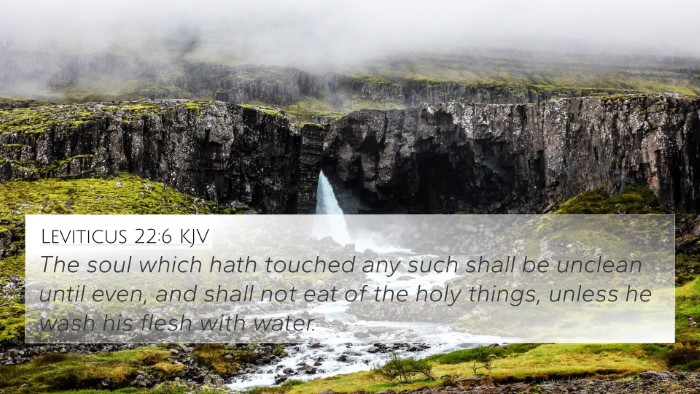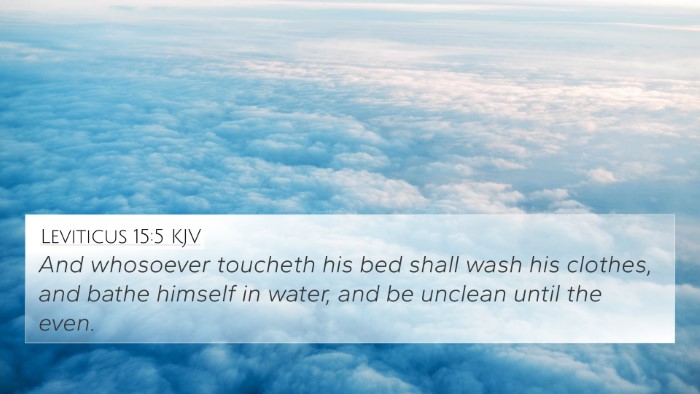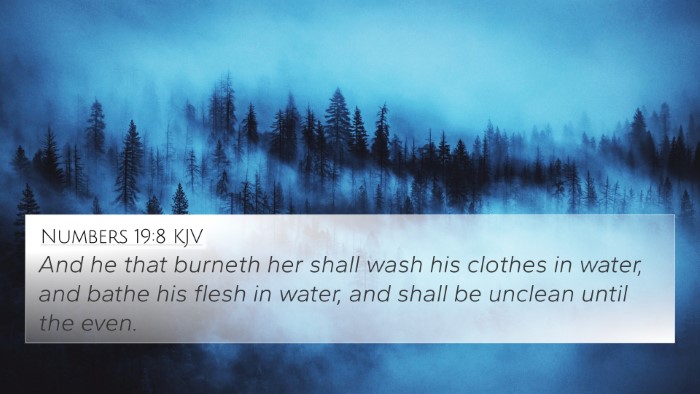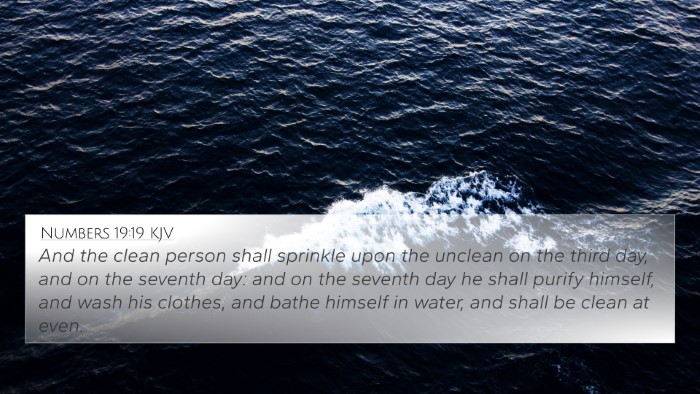Understanding Numbers 19:7
Numbers 19:7 states: "Then the priest shall wash his clothes, and he shall bathe his flesh in water, and afterward he shall come into the camp, and the priest shall be unclean until the evening."
Summary and Interpretation
This verse pertains to the ceremonial laws given to the Israelites regarding purity and cleanliness, especially in the context of the sacrificial system. The act of the priest washing his clothes and bathing signifies the importance of maintaining ritualistic cleanliness before engaging with the holy aspects of worship.
According to Matthew Henry, this ceremonial washing emphasizes God's holiness and the necessity for those who serve Him to maintain a state of purity. Such practices were essential for the priests as they mediated between God and the people.
Albert Barnes notes that the washing and bathing act as a symbol of purification, not just in a physical sense but also spiritually, representing the cleansing from sin and impurity before one could come before the Lord. The use of water here can be viewed as a biblical motif that resonates throughout Scripture, symbolizing life and purification.
Adam Clarke elaborates that the stipulation for the priest to remain unclean until the evening reflects the understanding of time in relation to sanctification. The evening marks the transition into a new day symbolizing renewal and the restoration of holiness which aligns with the cycles of worship practiced by the Israelites.
Cross-References and Connections
Numbers 19:7 links with several vital passages that dissect the themes of cleanliness, sacrifice, and approaching holiness in the divine presence. Here are notable cross-references:
- Exodus 30:20-21: Discusses the necessity for priests to wash before entering the sanctuary.
- Leviticus 15:5-10: Outlines laws of purity and the process of bathing for various forms of uncleanness.
- Leviticus 16:30: Emphasizes the day of atonement and the essential act of purification through washing.
- Psalm 51:7: "Purge me with hyssop, and I shall be clean; wash me, and I shall be whiter than snow," which underscores the concept of spiritual cleansing.
- Hebrews 9:13-14: Points to the greater purification through the blood of Christ, correlating the Old Testament rituals with New Testament grace.
- Matthew 23:26: Jesus emphasizes the importance of cleansing the inside of the cup (spiritual cleanliness) which resonates with the ideas in Numbers 19.
- 1 Peter 1:15-16: Calls believers to be holy, as God is holy, drawing on the theme of maintaining purity as highlighted in the Levitical laws.
Thematic Connections and Biblical Analysis
The process of cleansing described here not only serves the practical purpose of maintaining physical hygiene but also signifies a continuous need for spiritual renewal among God’s people. The biblical theme of cleansing appears consistently, encouraging believers to seek a pure heart.
By engaging in comparative Bible verse analysis, we can observe how various scriptures interrelate through a common divine purpose of sanctification and righteousness. Tools for Bible cross-referencing can assist in exploring these relationships more thoroughly.
As one studies across the scriptures, the connections become clearer—highlighting that God consistently emphasizes holiness among His people. This is further reinforced by examining the Old and New Testaments, revealing an overarching narrative centering on redemption and purity.
Conclusion
Overall, Numbers 19:7 reinforces the idea that approaching God requires more than just physical openness; it necessitates a spiritual cleansing prepared through ritual, symbolizing the deeper truth of the necessity for grace and repentance. Engaging in spiritual practices and understanding their origins allows for a richer, more informed faith experience, thus building a bridge through scriptural cross-referencing between Biblical texts both ancient and current.
